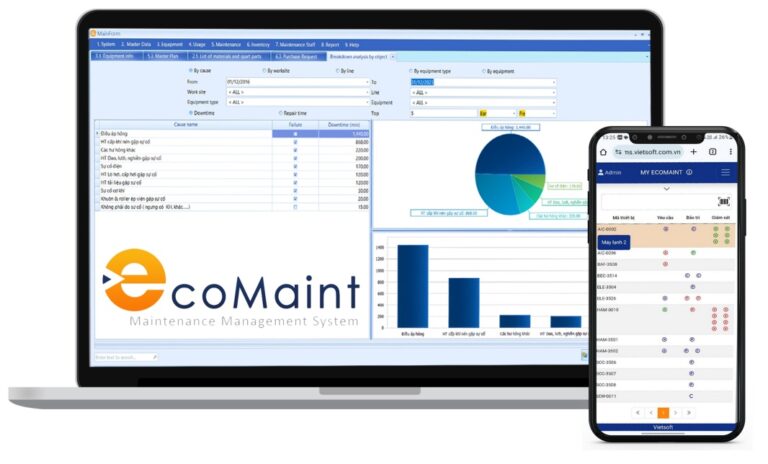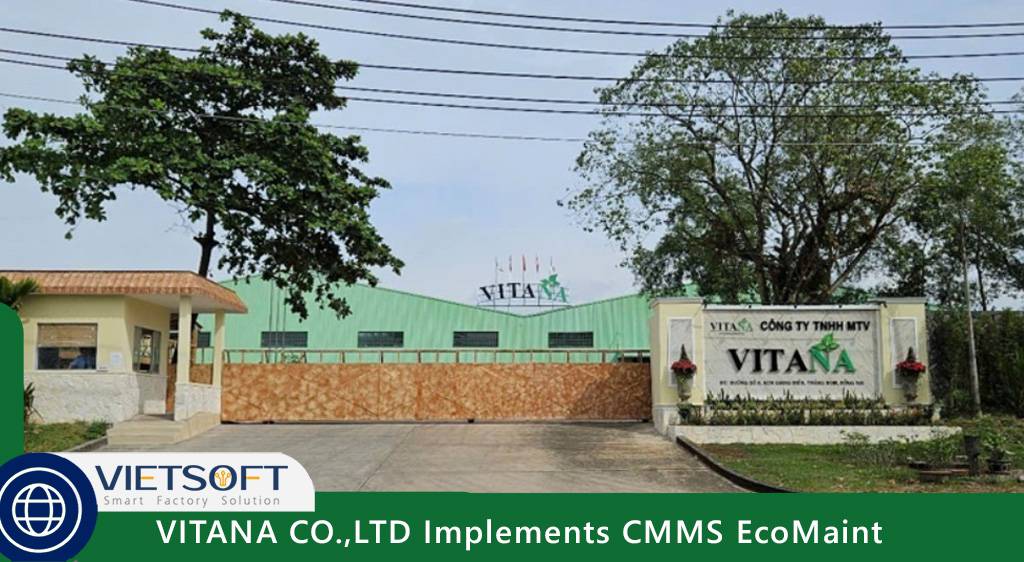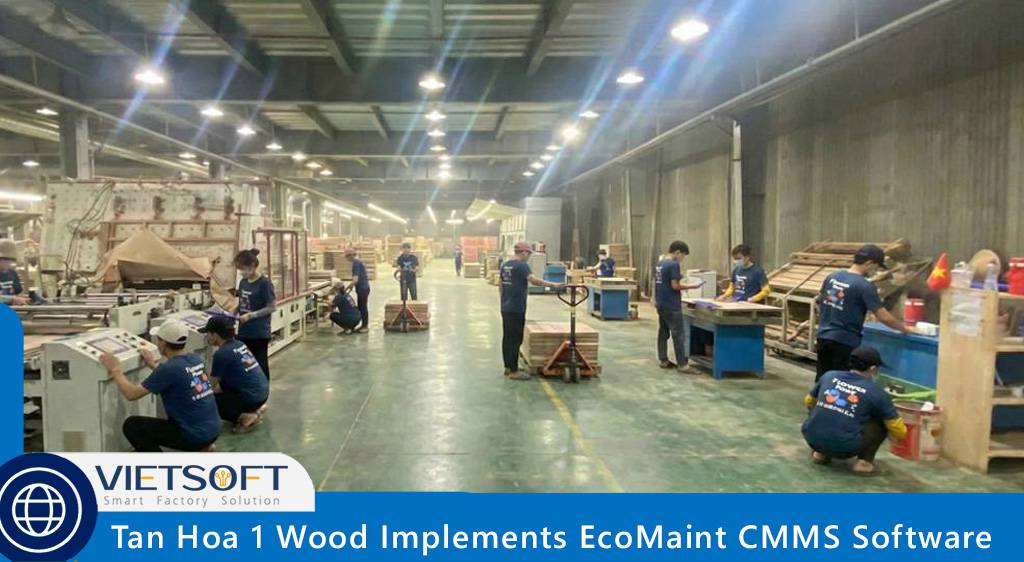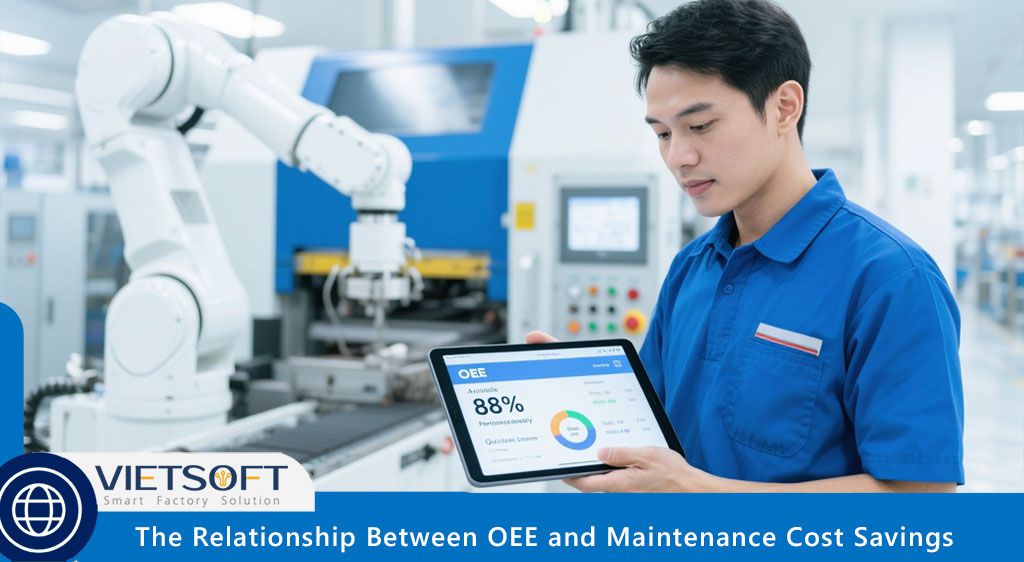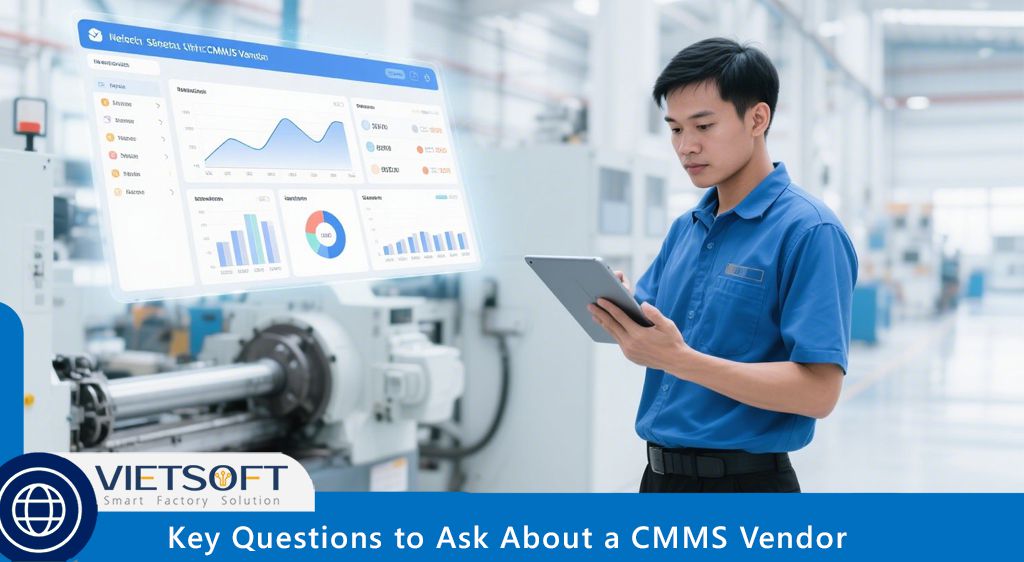
In today’s fast-paced industrial landscape, effective maintenance management is critical to operational success. A Computerized Maintenance Management System (CMMS) serves as the backbone for streamlining maintenance operations, optimizing asset performance, and reducing downtime. However, selecting the right CMMS vendor is just as crucial as choosing the software itself. We’ve crafted this comprehensive guide to help you navigate the process of choosing a CMMS vendor. This article explores the essential questions to ask about a CMMS vendor, ensuring you make an informed decision that aligns with your organization’s goals and operational needs.
By asking the right questions, you can evaluate a vendor’s reliability, software capabilities, and long-term support while ensuring the solution fits your industry-specific requirements.
I. What is a CMMS and Why Does It Matter?
A Computerized Maintenance Management System (CMMS) is a software platform designed to centralize maintenance operations, manage work orders, track assets, schedule preventive maintenance, and optimize resource allocation. By digitizing maintenance processes, a CMMS reduces manual errors, minimizes downtime, and enhances equipment reliability. For industries like manufacturing, energy, or facilities management, a CMMS is indispensable for maintaining operational continuity and meeting compliance standards.
The role of a CMMS extends beyond basic maintenance tracking. It provides actionable insights through data analytics, supports predictive maintenance with IoT integration, and ensures scalability as your business grows. However, the effectiveness of a CMMS depends heavily on the vendor behind it. A reliable vendor ensures seamless implementation, robust support, and continuous updates to keep the system aligned with evolving industry needs. Asking the right questions about a CMMS vendor is critical to securing a solution that delivers long-term value.
II. Why Asking the Right Questions About a CMMS Vendor is Crucial
Choosing a CMMS is a significant investment in both time and resources. The wrong vendor can lead to costly disruptions, data mismanagement, or software obsolescence. By asking targeted questions, you can assess a vendor’s experience, software functionality, and commitment to customer success. These questions help you:
- Align the CMMS with your needs: Ensure the software addresses your specific maintenance challenges.
- Evaluate vendor reliability: Confirm the vendor’s stability and ability to support your organization long-term.
- Maximize ROI: Select a solution that balances cost, functionality, and scalability.
- Minimize risks: Avoid vendors with inadequate support, outdated technology, or hidden costs.
With these goals in mind, let’s explore the key questions to ask about a CMMS vendor, organized into critical areas of evaluation.
III. Preparing to Evaluate a CMMS Vendor
Before engaging with vendors, prepare a clear framework to assess their offerings. This involves understanding your organization’s needs and involving key stakeholders—maintenance technicians, IT teams, procurement, finance, and senior management. Here’s how to get started:
· Identify stakeholder needs: What are the pain points of your maintenance team? Do technicians need mobile access? Does management require detailed reporting?
· Assess current workflows: Pinpoint inefficiencies in your maintenance processes to determine which CMMS features are essential.
· Define scalability requirements: Will the CMMS accommodate future growth, such as additional assets or users?
· Set budget constraints: Understand your financial limits, including setup, subscription, and ongoing support costs.
· Check compliance needs: Ensure the CMMS meets industry regulations (e.g., ISO 9001, GDPR, or HIPAA for healthcare).
With this preparation, you’re ready to ask about a CMMS vendor’s capabilities. Below are the key questions, grouped by focus areas, to guide your evaluation.
IV. Key Questions to Ask About a CMMS Vendor’s Experience and Stability
A vendor’s track record and industry experience are strong indicators of reliability. A well-established vendor with a history of serving your industry is more likely to deliver a solution tailored to your needs. Here are essential questions to ask about a CMMS vendor’s background:
1. How Long Has the Vendor Been in Business?
A vendor with over 15 years in the market demonstrates financial stability and a proven track record. Longevity suggests they’ve weathered industry changes and consistently delivered quality solutions. For example, a vendor like Vietsoft, with its EcoMaint CMMS, has extensive experience in the Vietnamese market, tailoring solutions for manufacturing and industrial sectors.
2. Do They Have Experience in Your Industry?
Ask for case studies or references from clients in your industry, such as manufacturing, healthcare, or energy. Industry-specific experience ensures the CMMS addresses unique challenges, like equipment downtime in production or compliance in pharmaceuticals. If the vendor hesitates to provide references, ask about successful use cases or check third-party review platforms like Software Advice.
3. What is Their Customer Retention Rate?
High customer retention indicates satisfaction and trust. A vendor with a strong retention rate is likely to provide reliable support and continuous improvements. For instance, Vietsoft’s EcoMaint has built long-term relationships with Vietnamese manufacturers by offering tailored solutions and responsive support.
4. How Do They Handle Software Evolution?
Ask about the frequency of updates and the vendor’s roadmap for future enhancements. A proactive vendor regularly updates their CMMS to incorporate new technologies like AI, IoT, or predictive maintenance. This ensures the system remains relevant as your business evolves.
V. Questions to Ask About a CMMS Vendor’s Software Features
The functionality of a CMMS determines its ability to streamline your maintenance operations. Below are critical questions to ask about a CMMS vendor’s software capabilities, ensuring they align with your operational needs.
1. How Does the CMMS Address Your Maintenance Needs?
Request a detailed explanation of how the software handles key tasks like:
- Work Order Management: Can it automate work order creation and prioritize tasks based on urgency?
- Preventive Maintenance: Does it support automated scheduling and predictive maintenance for critical assets?
- Asset Management: Is there a robust registry for tracking equipment performance and lifecycle?
- Inventory Control: Can it manage spare parts and automate reordering to prevent production delays?
2. Is the CMMS User-Friendly?
A user-friendly interface is critical for adoption by maintenance technicians and managers. Ask about:
- Navigation and Design: Is the interface intuitive, with customizable dashboards?
- Mobile Accessibility: Does the CMMS offer a mobile app for technicians on the go?
- Training Resources: What training materials or sessions are provided to ensure smooth adoption?
A system like EcoMaint prioritizes usability with a mobile app and multilingual support, making it accessible for Vietnamese teams.
3. Does the CMMS Integrate with Other Systems?
Seamless integration with existing tools (e.g., ERP, IoT sensors, or inventory systems) enhances efficiency. Ask:
- Can the CMMS connect with your current software stack?
- Does it support APIs or third-party integrations?
- How does it handle data silos to ensure unified operations?
4. What Reporting and Analytics Tools Are Available?
Robust reporting is essential for data-driven decision-making. Ask about:
- Customizable Reports: Can you create tailored reports for downtime, costs, or asset performance?
- Real-Time Dashboards: Are there visual tools for tracking KPIs like equipment uptime or maintenance costs?
- Predictive Analytics: Does the CMMS use AI or machine learning to forecast equipment failures?
EcoMaint, for instance, provides customizable dashboards and predictive analytics to help Vietnamese manufacturers optimize maintenance strategies.
VI. Questions to Ask About a CMMS Vendor’s Pricing and Costs
Understanding the total cost of ownership (TCO) is critical to avoid unexpected expenses. Here are key questions to ask about a_CMMS vendor’s pricing structure:
1. What is the Pricing Model?
Clarify whether the CMMS is offered as a one-time purchase or a subscription-based Software-as-a-Service (SaaS) model. Ask about:
- Setup Costs: Are there fees for installation or data migration?
- Subscription Fees: What are the recurring costs for licenses or cloud hosting?
- Additional User Costs: How much is charged for adding users or assets?
- Refund Policy: What happens if the system doesn’t meet expectations?
2. Are There Hidden Costs?
Inquire about potential hidden costs, such as:
- Maintenance or upgrade fees
- Costs for additional features or customizations
- Charges for premium support or training
A transparent vendor, like Vietsoft, provides clear pricing for EcoMaint, ensuring no surprises for Vietnamese businesses.
3. Are Discounts Available?
Ask about discounts for long-term contracts, non-profits, or bulk user licenses. This can help align the CMMS with your budget.
VII. Questions to Ask About a CMMS Vendor’s Implementation Process
A smooth implementation is critical to CMMS success. Ask these questions to ensure the vendor supports a seamless rollout:
1. What Does the Implementation Process Entail?
Request a detailed implementation plan, including:
- Timeline: How long will setup and data migration take?
- Customization: Can the system be tailored to your workflows?
- Integration: How will the CMMS integrate with existing systems?
2. What Resources Are Provided for Implementation?
Ask about:
- Dedicated Support: Does the vendor assign a project manager or implementation team?
- Data Migration: Will they assist in transferring existing maintenance data?
- Testing: Is there a testing phase to ensure the system meets your needs?
Vietsoft’s EcoMaint implementation process, for example, includes dedicated support and customized workflows for Vietnamese industries, ensuring a smooth transition.
VIII. Questions to Ask About a CMMS Vendor’s Training and Support
Ongoing training and support are vital for maximizing the CMMS’s value. Here are key questions to ask:
1. What Training Options Are Available?
Ask about:
- Training Formats: Are there online, on-site, or hybrid training sessions?
- User Levels: Are there tailored programs for technicians, managers, and IT staff?
- Access to Materials: Are training resources available post-implementation?
EcoMaint offers multilingual training modules, making it easy for Vietnamese teams to adopt the system.
2. What Support Services Are Provided?
Evaluate the vendor’s support system:
- Availability: Are support teams available 24/7 or during your operating hours?
- Channels: Can you reach support via phone, email, or live chat?
- Response Time: What is the average time to resolve issues?
- Escalation Process: How are critical issues prioritized?
3. Are Updates and Upgrades Included?
Ask whether software updates are free or included in a support package. Regular updates ensure the CMMS remains secure and feature-rich.
IX. Questions to Ask About a CMMS Vendor’s Compliance and Security
Data security and regulatory compliance are non-negotiable in industries like manufacturing or healthcare. Ask these questions to ensure the CMMS meets standards:
1. Does the CMMS Comply with Industry Standards?
Verify compliance with standards like:
- ISO 9001:2015: Ensures quality management processes.
- ISO/IEC 27001: Focuses on data security and confidentiality.
- GDPR: Protects data privacy for EU-based operations.
- Industry-Specific Standards: For example, HIPAA for healthcare or PCI DSS for payment processing.
2. How Is Data Stored and Protected?
Ask about:
- Cloud vs. On-Premise: Is the data hosted securely in the cloud or on your servers?
- Data Encryption: Are data transfers and storage encrypted?
- Backup and Recovery: What measures are in place for data loss prevention?
EcoMaint, for instance, adheres to ISO standards and offers secure cloud hosting, ensuring data safety for Vietnamese businesses.
X. Why Choose EcoMaint by Vietsoft?
When evaluating CMMS vendors, consider EcoMaint by Vietsoft, a leading solution tailored for the Vietnamese market. With years of experience in industrial maintenance, Vietsoft offers a robust, user-friendly CMMS that streamlines work order management, preventive maintenance, and asset tracking. EcoMaint’s mobile app and customizable dashboards empower technicians to work efficiently, while its predictive analytics help reduce downtime. Vietsoft’s commitment to customer success includes comprehensive training, responsive support, and seamless integration with existing systems.
Curious about how EcoMaint can transform your maintenance operations? Discover CMMS EcoMaint here.
Contact us via hotline: 0986778578 or email: sales@vietsoft.com.vn.
XI. Conclusion: Making an Informed CMMS Vendor Choice
Selecting the right CMMS vendor is a strategic decision that impacts your organization’s efficiency, compliance, and growth. By asking the right questions about a CMMS vendor—covering their experience, software features, pricing, implementation, support, and compliance—you can ensure a solution that meets your needs today and scales with your future goals. A reliable vendor like Vietsoft, with its EcoMaint CMMS, offers a proven solution tailored for industries in Vietnam, delivering measurable results in maintenance optimization.
Take the time to evaluate vendors thoroughly, request demos, and involve stakeholders to align the CMMS with your operational goals. With the right questions and a trusted vendor, you’ll unlock the full potential of your maintenance strategy, driving productivity and success.

